Magnetism is a force that human senses are unable to detect.
Properties of Magnetism and Impact on Humans
You can’t feel magnetism
The human body is diamegnetic and magnetism flows through it almost fully unobstructed. The magnetic field lines are only minimally disturbed. Yet nonetheless, we cannot feel magnetism – unless we are in extremely powerful magnetic fields, which may cause dizziness. Permanent magnets have a strong impact on our nervous system: For example, when performing MRI diagnostics, the recommendation is not to exceed an annual dosage of 3 times 20 minutes.
A low magnetic flux is touted for its healing properties and is offered in the form of plaster bandages, shoe inserts, amulets or bracelets. In contrast, strong magnetic flux may cause dizziness and even fainting. This is why, for example, magnets used as name tag holders may be a problem and are not shielded toward the body.
We can neither see nor smell magnetism
Magnetic field lines can neither be detected with the naked eye nor smelled with the nose. However, while there is nothing we can do to elicit any noticeable smell from magnetism, we can make it visible, even if only indirectly. The classic method is to use iron shavings. However, if you want more precise values, a measuring device should be used, such as our M-Test MK4. It recognizes magnetism using a sensitive echo sensor and feeds it into electrical circuits. The measuring device shows the values in the form of digits on a display, yet the M-Test MK4 offered by Maurer Magnetic also makes magnetism visible using an LED directly above the point of measurement.
Instructions for the safe handling of magnets
Danger
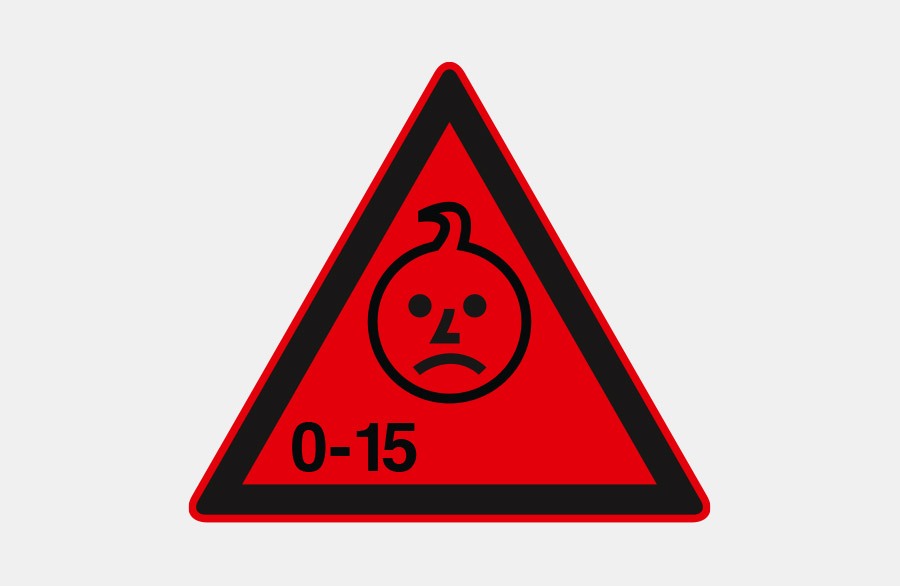
Ingestion
Children may ingest magnets.
If several magnets are ingested, they may get caught in the intestine and cause life-threatening complications.
Magnets are not a toy! Make sure to keep magnets away from children.
Danger
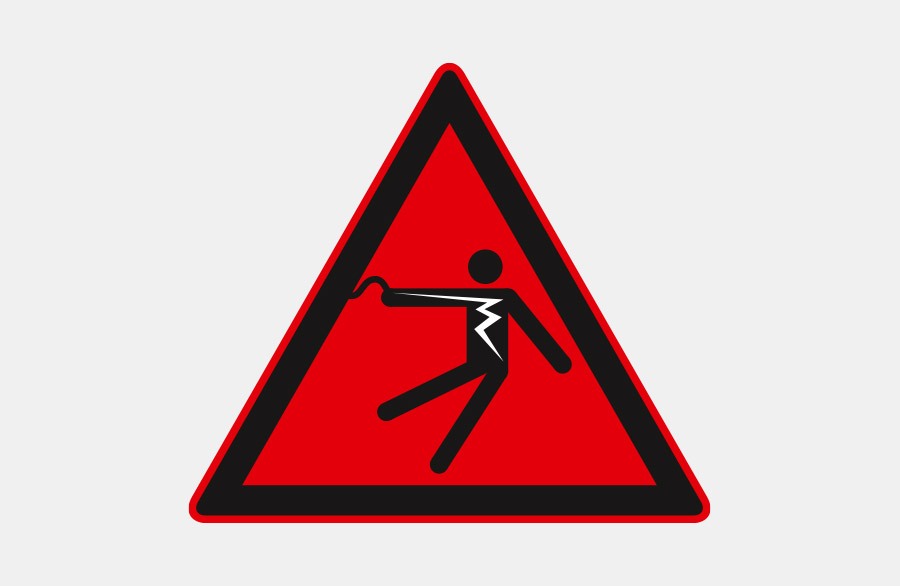
Electrical conductivity
Magnets are made of metal and conduct electrical current.
A child may attempt to insert magnets into a wall socket and suffer from electric shock as a result. Magnets are not a toy! Make sure to keep magnets away from children.
Warning
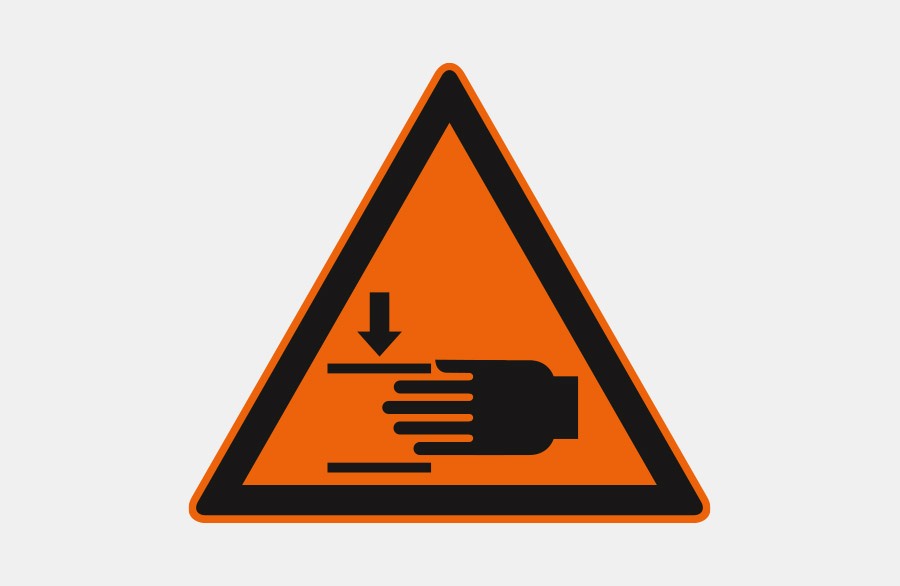
Crushing
Large magnets have a strong magnetic pull.
- If handled carelessly, fingers or skin may become pinched between two magnets. This may cause crushing and bruising in the affected areas.
- The force of very large magnets may cause bone fractures.
When handling larger magnets, wear thick protective gloves.
Warning
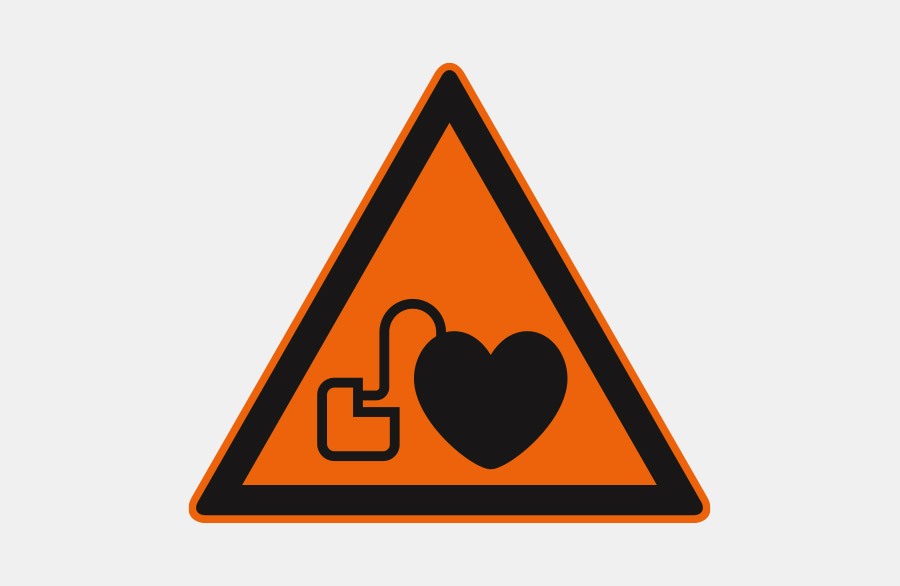
Pacemakers
Magnets may affect the functions of pacemakers and implanted defibrillators.
- A pacemaker may be switched to test mode and cause discomfort.
- In some cases, a defibrillator may stop working.
- If you have an implanted device of this kind, keep a sufficient distance to magnets.
- Warn persons with implanted devices to keep their distance from magnets.
Warning
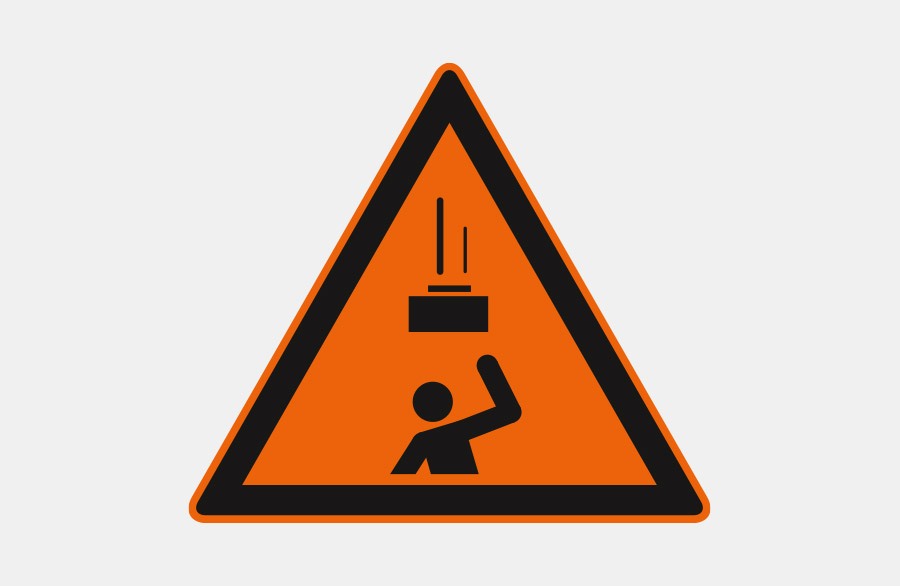
Heavy objects
Too heavy loads or sudden load changes, fatigue and/or material defects may cause a magnet or a magnet hook to loosen from its adhesion.
Falling objects may cause severe injuries.
Warning
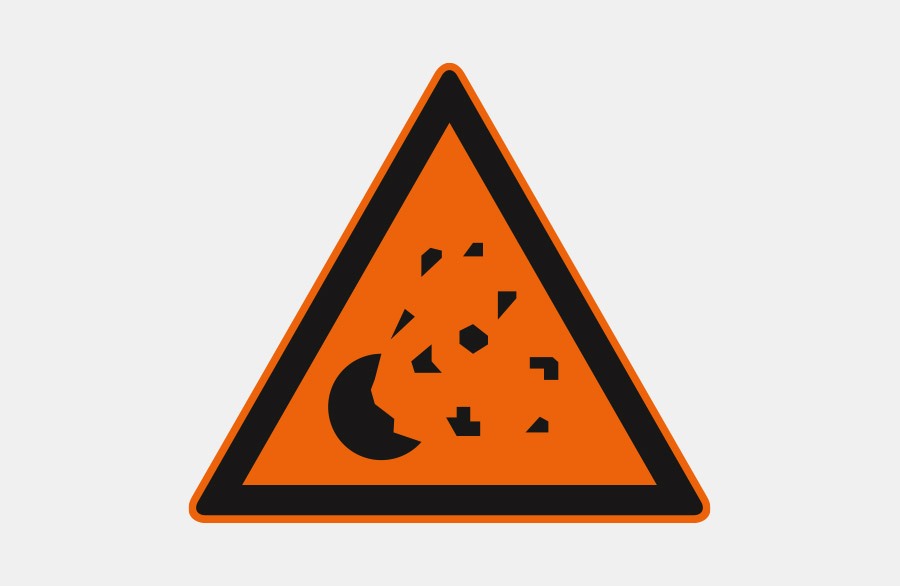
Metal splinters
Neodymium magnets are brittle. If two magnets collide, they may splinter.
Sharp-edged splinters can fly several meters and may cause eye injuries.
- Avoid collisions with magnets.
- Wear protective goggles when handling larger magnets.
- Make sure that persons standing nearby are also protected or keep their distance.
Caution
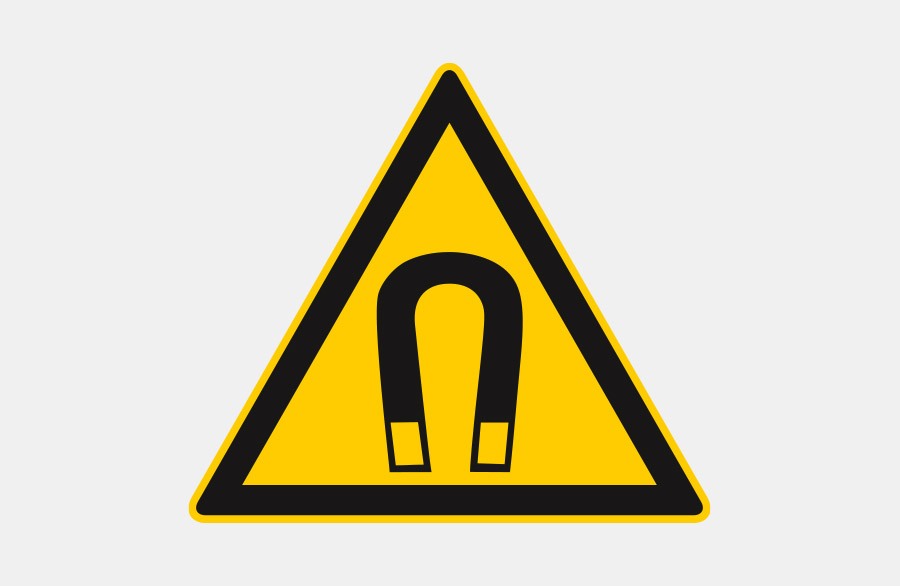
Magnetic field
Magnets create a far-reaching, strong magnetic field. They can cause damage to products such as televisions and laptops, computer hard drives, credit cards and EC cards, data carriers, mechanical clocks, hearing aids and speakers.
- Keep magnets away from all devices and objects, which can be damaged by strong magnetic fields.
Caution
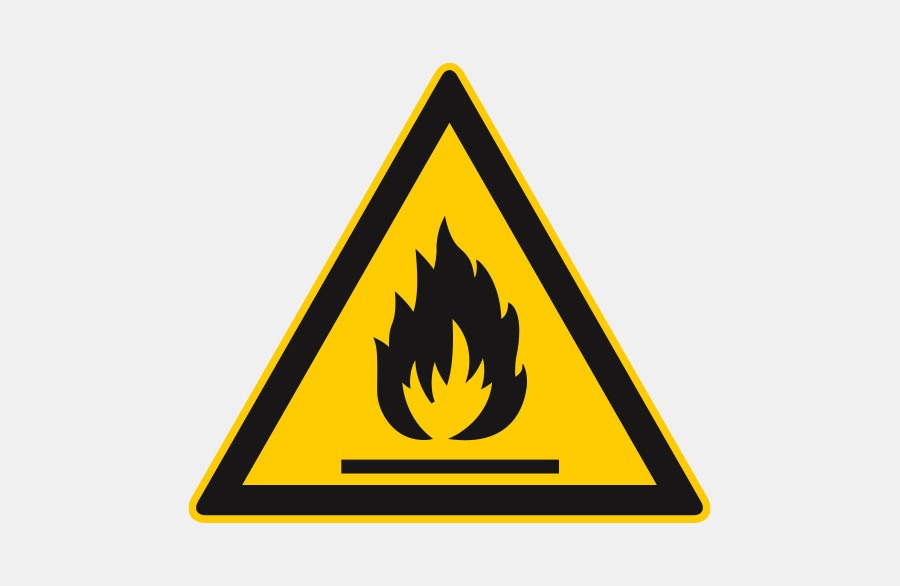
Flammability
When mechanically machining neodymium magnets, the drilling dust can be easily ignited.
Do not machine magnets, or use a suitable tool and sufficient cooling water.
Caution
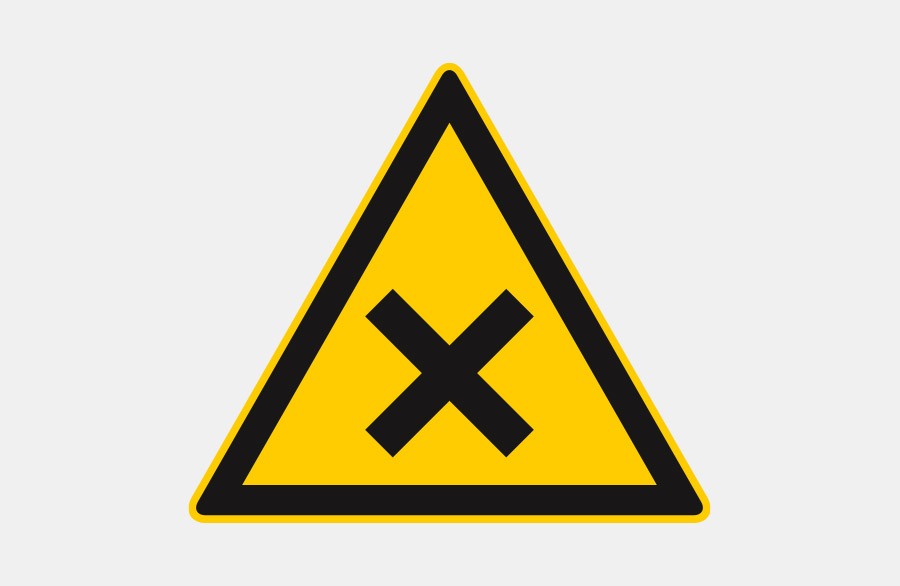
Nickel allergies
Most of our magnets contain nickel, even those that do not have a nickel coating.
- Some people have allergic reactions when they come into contact with nickel.
- Nickel allergies may develop if there is continued contact to objects that contain nickel.
- Avoid continued skin contact with magnets.
- Do not handle magnets if you suffer from nickel allergies.
Caution
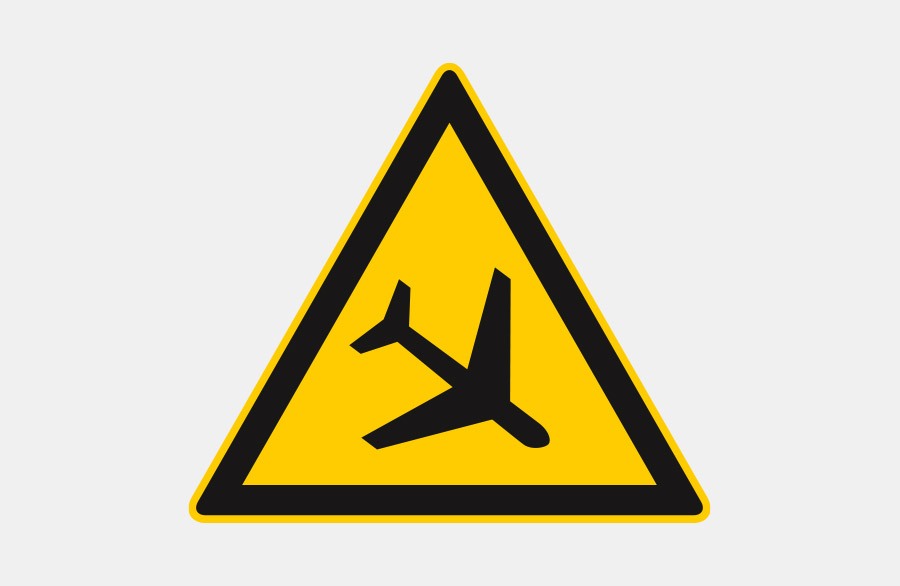
Air freight
The magnetic fields of magnets that were not properly packaged may influence the navigation devices in aircraft.
In a worse case scenario, this may cause an accident.
- Only send magnets by air freight in packaging with sufficient magnetic shielding.
- Observe the relevant regulations: IATA 902
Caution
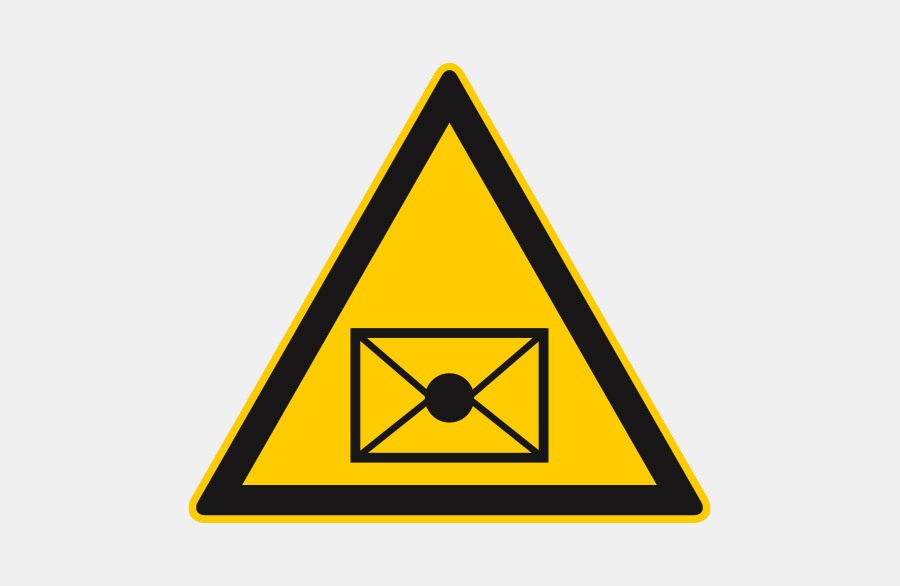
Shipping by mail
The magnetic fields of magnets that were not properly packaged may cause sorting devices to malfunction and damage to sensitive goods in other packages.
Please read our Shipping Tips:
- Use a generously sized box and use filling material to place the magnets in the center of the package.
- Arrange the magnets in package so that the magnetic fields neutralize each other.
- If necessary, use iron plates to shield the magnetic field.
- Stricter rules apply when shipping by air freight: Observe the “Air freight” warning.
Note

Effects on humans
According to the current state of knowledge, magnetic fields of permanent magnets have no measurable positive or negative effect on humans. A health risk due to the magnetic field of a permanent magnet is unlikely, but it cannot be completely ruled out.
- For your own safety, avoid continuous contact with magnets.
- Keep large magnets at least one meter away from your body.
Note

Chipping of coating
Most of our neodymium magnets have a thin nickel-copper-nickel coating as protection against corrosion. The coating may chip off or cracks may form as a result of collision or high pressure. This makes the magnets more susceptible to environmental influences such as moisture and may cause them to oxidize.
- Use a piece of cardboard to separate large magnets, balls especially.
- Generally keep magnets from colliding and any from any repetitive mechanical stress loads (such as impacts).
Note

Oxidation, corrosion, rust
Untreated neodymium magnets oxidize very quickly and decompose as a result.
Most of our magnets have a thin nickel-copper-nickel coating as protection against corrosion. This coating does provide a certain amount of protection against corrosion, however it is not durable enough for continuous outdoor use.
- Only use the magnets in a dry indoor area or protect the magnets from environmental influences.
- Avoid damage to the coating.
Note

Temperature resistance
Magnets have a limited maximum operating temperature according to our specifications.
- Do not use magnets at locations where they would be subject to high heat.
- If you use an adhesive, do not cure it with hot air.
Note

Mechanical machining
Magnets are brittle, heat sensitive and oxidize easily.
- When drilling or cutting a magnet using unsuitable tools, the magnet may break.
- With the heat that is generated, the magnet may demagnetize.
- The magnet may oxidize or disintegrate if the coating is damaged.
Do not machine magnets if you do not have the necessary machines and experience. Instead, request a quote for a Custom Products.

